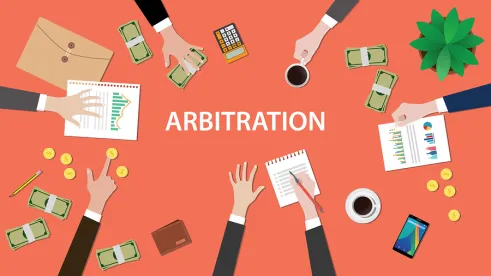In a recent case, the California Court of Appeal held, employees could not be compelled to arbitrate their claim under California’s Private Attorney General Act without the government’s consent, despite signing an arbitration agreement. Correia v. NB Baker Electric.
There, plaintiffs Mark Correia and Richard Stow sued their former employer, NB Baker, alleging wage-and-hour violations and seeking civil penalties under the Private Attorney General Act of 2004 (PAGA). Defendant NB Baker petitioned the Court for arbitration pursuant to the parties’ arbitration agreement, which provided that arbitration would be the exclusive forum for any dispute. Moreover, the arbitration agreement stipulated no dispute could be brought as a class or representative action.
The trial court granted the arbitration petition on all causes of action except for the PAGA claim, following two prior California decisions. (Iskanian v. CLS Transportation Los Angeles, LLC (2014 59 Cal. App. 4th 48) (holding unenforceable agreements to waive the right to bring PAGA representative actions in any forum) and Tanguilig v. Bloomingdales, Inc. (2016) 4 Cal. App. 5th 665 (holding a PAGA claim cannot be compelled to arbitration without the state’s consent)).
NB Baker appealed, arguing the United States Supreme Court decision Epic Systems Corp v. Lewis (2018), which reaffirmed the broad preemptive scope of the Federal Arbitration Act, preempted Iskanian and Tanguilig.
The Court of Appeal affirmed the trial court’s finding, holding California courts remain bound by Iskanian. The Court acknowledged the Epic court’s findings, but concluded they were not applicable because Epiq did not specifically address the issues of claims for civil penalties brought on behalf of the government, and the enforceability of an agreement barring a PAGA representative action in any forum. The Court concluded that a waiver of PAGA representative claims in any forum is unenforceable.
In applying Iskanian, the Court also found that the State is the real party in interest in a PAGA claim. Therefore, the State must consent to an agreement to effectively waive the right to bring a PAGA claim into court.
The Court acknowledged the seeming inconsistency of its findings with the federal courts, but characterized the federal decisions as “unpersuasive” due to the fact those courts did not fully consider the implications of the “qui tam” nature of a PAGA claim on the enforceability of an employer-employee arbitration agreement.
What does this mean for employers? Under this clarification, California employers cannot avoid PAGA lawsuits in Superior Court through a general pre-dispute agreement. While an employee may still agree to waive their right to a jury trial and proceed to arbitration on a variety of claims, such an agreement is unenforceable as it relates to PAGA claim. Of course, the best manner to prevent and/or effectively defend PAGA suits is to ensure proper compliance with all local, state and federal regulations, and maintain ample written record of the same.




 />i
/>i

